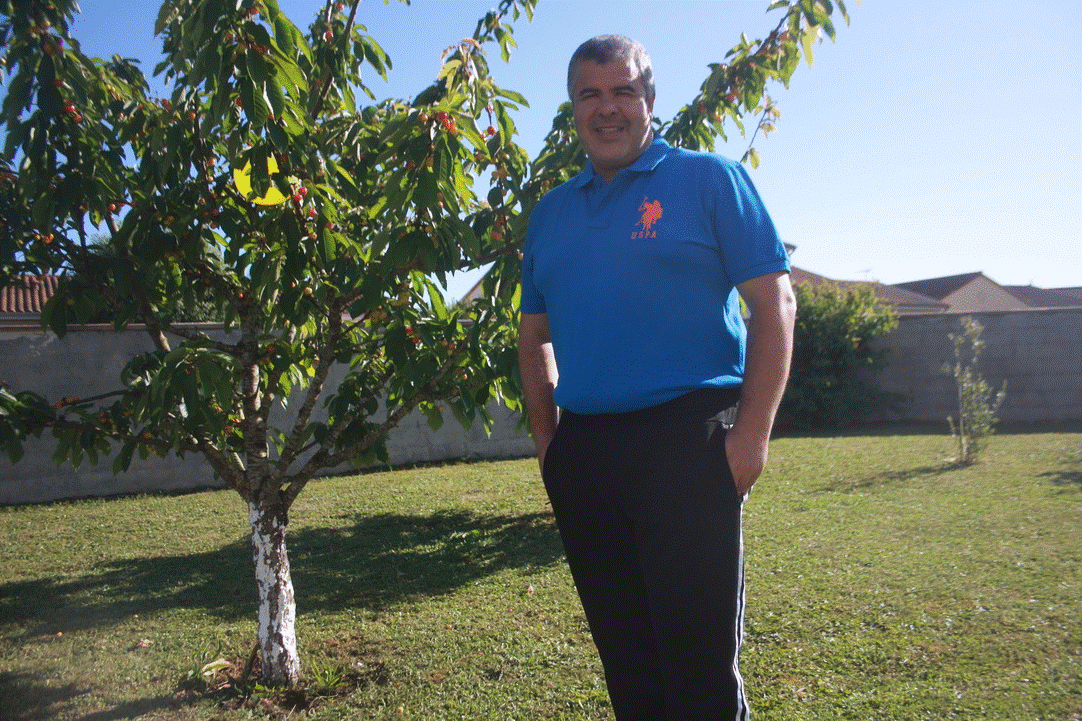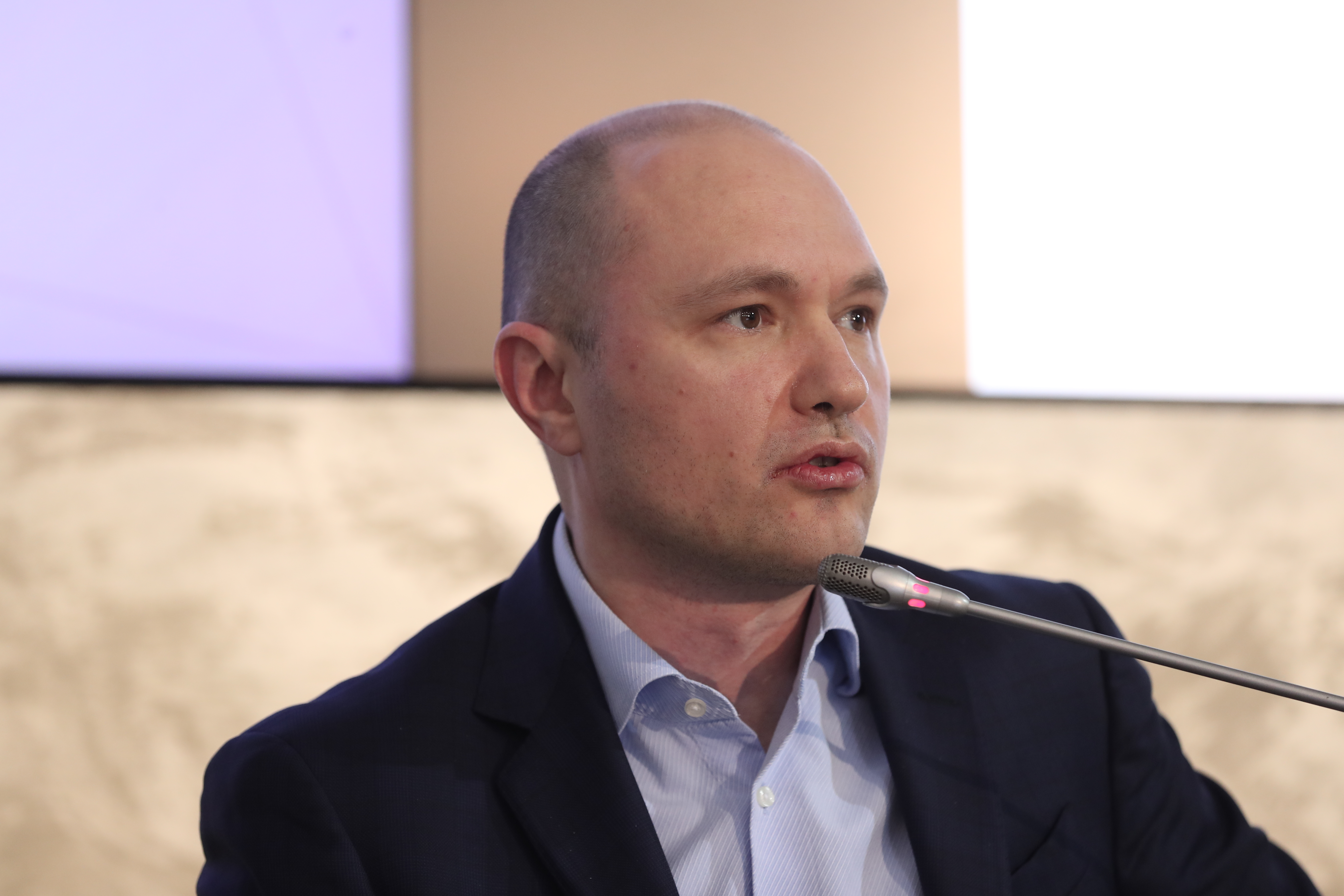Plenary Sessions
Keynotes
Towards Green Data Management Systems

Ladjel Bellatreche
National Engineering School for Mechanics and Aerotechnics (ENSMA) of Aerospace Engineering Group (ISAE)
Poitiers, France
Brief Bio
Ladjel Bellatreche is a Full Professor at National Engineering School for Mechanics and Aerotechnics (ENSMA) of Aerospace Engineering Group (ISAE) , Poitiers, France, where he joined as a Faculty Member since September 2010. He leads the Data Engineering Group of the Laboratory of Computer Science & Automatic Control for Systems (LIAS) . He was Director of the LISI laboratory from January 2011 till January 2012. Prior to that, he spent eight years as an Assistant and then an Associate Professor at the Poitiers University, France. Ladjel was a Visiting Professor at the Harbin Institute of Technology (HIT) - China (2018, 2019), the Québec en Outaouais - Canada (2009), a Visiting Researcher at the Purdue University - USA (2001) and the Hong Kong University of Science and Technology, China (1997-1999). His current research interests include the different phases of the life cycle of designing data management systems/applications: requirement engineering, conceptual modelling using ontologies and knowledge graphs, logical modelling, Extraction-Transformation-Loading, deployment, physical design, personalisation and recommendation. Ladjel (co)-supervised 30 Ph.D. students on different topics covering the above phases.
Ladjel covers several roles as a Steering Committee member of French and International conferences (EDA, BDA, ADBIS, DOLAP, MEDI). He served as a General and a Program (co)-Chair of French and International conferences (including EDA, BDA, JFO, ADBIS, Big Data Analytics, MEDES, DaWaK, DOLAP, IEEE SmartData). Ladjel is the co-founder of the International Conference on Model and Data Engineering (MEDI) and the International Workshop on Ontologies Meet Advanced Information Systems (OAIS). He managed several special Issues as a (co)-editor in high-indexed journals: Big Data Research, Data & Knowledge Engineering, Distributed and Parallel Databases, Computers in Industry, Computing, Concurrency and Computation: Practice and Experience, Future Generation of Computer Systems, Information Systems, Information Systems Frontiers and Journal on Data Semantics. Ladjel is an Associate Editor of the Data and Knowledge Engineering Journal and an Editorial Board Member of the International Journal of Reasoning-based Intelligent Systems and Computer Science and Information Systems. Ladjel serves as a Program Committee Member in top-quality international conferences. He is an author or a co-author of more than 270 papers in International Conferences and Journals. He has received more than 3161 citations (h-index=27). His research has been funded by several industrial contracts and 2 EU projects.
Abstract
In today's world, our life depends too much on computers. Therefore, we are forced to look at every way to save the energy of our hardware components, system software, as well as applications. Data Management Systems (DMSYSs) are at the heart of the energy new world order. The query processor is one of the DMSYS components in charge of the efficient processing of data. Studying the Energy-Efficiency of this component has become an urgent necessity. Most query optimizers minimize inputs/outputs operations and try to exploit RAM as much as possible. Unfortunately, they generally ignore energy aspects. Furthermore, many researchers have the opinion that only the OS and firmware that should manage energy, leaving DMSYSs as a second priority. In our opinion, software and hardware solutions must be integrated to maximize energy savings. This integration seems natural since query optimizers use cost models to select the best query plans and use hardware and software parameters. As scientists, we first feel obliged to motivate researchers to embrace the Energy-Efficiency of DMSYSs through a survey. Secondly, to accompany them, we propose a road-map covering the recent hardware and software solutions impacting query processors. Finally, guidelines for developing green query optimizers are widely discussed.
Presentation (DAMDID/RCDL'2020, 13.10.2020)
Conceptual Modeling and Life Engineering: Facing Data Intensive Domains Under a Common Perspective

Óscar Pastor
Polytechnic University of Valencia, Research Center on Software Production Methods (PROS)
Brief Bio
Oscar Pastor is Full Professor and Director of the “Software Production Methods” (PROS) at the Polytechnic University of Valencia (Spain). He received his Ph.D. in 1992. Supervisor of 20 completed PhD theses and 31 completed Masters theses on topics that relate to Conceptual Modeling, he has published more than three hundred research papers in conference proceedings, journals and books, received numerous research grants from public institutions and private industry, and been keynote speaker at several conferences and workshops.
Chair of the ER Steering Committee (2009-10), ER Fellow since 2010, member of the SC of conferences as CAiSE, ER, ICWE, ESEM, CIbSE or RCIS, and member of over 100 Scientific Committes of top-ranked international conferences, his research activities focus on conceptual modeling, web engineering, requirements engineering, information systems, and model-based software production.
He created the object-oriented, formal specification language OASIS and the corresponding software production method OO-METHOD. He led the research and development underlying CARE Technologies that was formed in 1996. CARE Technologies has created an advanced MDA-based Conceptual Model Compiler called Integranova, a tool that produces a final software product starting from a conceptual schema that represents system requirements. He is currently leading a multidisciplinary project linking Information Systems and Bioinformatics notions, oriented to designing and implementing tools for Conceptual Modeling-based interpretation of the Human Genome information.
Abstract
Understanding the Hunan Genome is the big scientific challenge of our century. It will probably lead to a new kind of “Homo Sapiens” with new capabilities never before affordable for human being as we know them. This will be referred in the keynote as an “Homo Genius” evolution. Getting a shared understanding of the domain is a first essential task in order to manage correctly and efficiently such a complex data intensive domain. With more and more data being generated day after day with the continuous improvements of sequencing technologies, selecting the right data man-agement strategy intended to support the design of the right software platforms that successfully attend user requirements (in terms of relevant information needs) becomes a unavoidable, crucial goal.
This talk will discuss how the use of a sound conceptual modeling support is fundamental in order to convert that "understanding the genome challenge" into a Life Engineering problem, where conceptual modeling, explainable artificial intelligence and data science must work together in order to provide accurate, reliable and valuable solutions, putting an special emphasis in the modern Medicine of Precision applications.
Invited Talks
Huawei GaussDB A and Moscow Database Intelligence and Optimization Technology Center

Pavel Velikhov
Huawei
Abstract
In this talk GaussDB A, an MPP Analytical Database from Huawei, is introduced. The research are being conducted in the Moscow Database Lab on this database is briefly described. GaussDB A is a world-class Analytical Database with many dep-loyments in mainland China and over the world. It has been in development for over 8 years now. Currently, its being offered as a standalone solution and also as part of Huawei Cloud. In the Moscow Database Lab research in how to optimize GaussDB A, including using advanced machine learning methods to generate better query plans, solving the problems of skewed data, and incorporating in-memory database technologies are being conducted.
Artificial Intelligence and Data Analysis Methods in Healthcare

Alexey Molodchenkov
Federal Research Center “Computer Science and Control”, Russian Academy of Sciences
Abstract
Здоровье определяется многочисленными факторами: наследственными, средовыми, социальными и др. Их совокупность определяет риск возникновения различных патологий. В ФИЦ ИУ РАН ведется разработка технологии оценки рисков различных заболеваний и построения плана профилактических мероприятий с использованием методов искусственного интеллекта и анализа данных. При этом здоровьесбережение и оздоровление организма рассматривается в цифровом контуре профилактической медицины. В связи с этим следует отметить, что профилактика в традиционной форме, то есть, как комплекс мероприятий, направленных на предупреждение какого-либо явления и/или устранение факторов риска, приводящих к этому явлению, включает формирование здорового образа жизни, в том числе повышение уровня знаний всех категорий населения о влиянии негативных факторов и возможностях снижения этого влияния. Разработанная в ФИЦ ИУ РАН интеллектуальная система для мониторинга и контроля факторов, угрожающих развитием заболеваний, включает формирование индивидуальных мероприятий по оздоровлению людей у которых обнаружены риски отдельных, социально значимых заболеваний (инфаркт, инсульт, депрессия). В основе рассмотренной системы здоровьесбережения заложен принцип медицины 4Р: предсказание (predictive) обеспечивает прогноз или оценку риска заболеваний, предупредительные мероприятия (preventive) позволяет формировать рекомендации, основанные на учете личностных (personalize) особенностей проявления возможной патологии, а соучастие (participant) предполагает активное участие человека в коррекции своего образа жизни. Эти принципы 4P обеспечиваются благодаря тому, что база знаний системы на основе неоднородной семантической сети не только объединяет атрибуты факторов риска в единую сеть, но и включает туда узлы с рекомендациями, соответствующими выявляемым в конкретный момент комбинациям риск-факторов у индивидуума. Построение персональных рекомендаций основано на алгоритме аргументационных рассуждений. Это соответствует персонализированному подходу к профилактике болезней. Поступающие в базу данных новые сведения позволяют отслеживать и учитывать критически важные отклонения параметров в динамике. Сама база знаний и ряд интеллектуальных компонентов системы были построены на основе анализа большого объема данных.
Important dates
| Paper submission | 01.06.2020 |
| Tutorial application submission | 01.06.2020 |
| Notification of acceptance for the 1st round | 01.07.2020 |
| Final notification of acceptance | 24.08.2020 |
| Camera-ready papers | 31.08.2020 |
| Paper submission | 01.06.2020 |
| Notification of acceptance for the 1st round | 01.07.2020 |
| Final notification of acceptance | 24.08.2020 |
| Camera-ready papers | 31.08.2020 |
| Satellite Event submission | 01.06.2020 |
| Notification of acceptance | 10.06.2020 |
